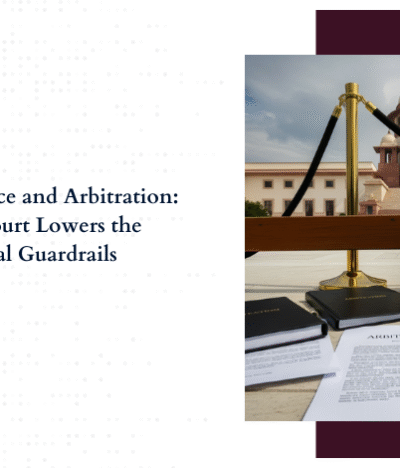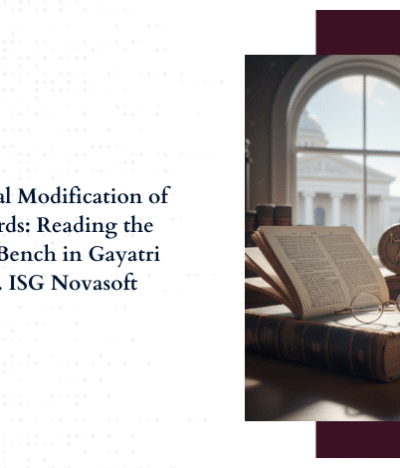How to transfer property from husband to wife after death? The process of transfer of property to wife after death of husband in India can be intricate, involving various legal steps and considerations. The primary factor determining the procedure is whether the deceased husband left behind a will. If there is a valid will, the property distribution is governed by testamentary succession, where the named executor manages the estate.
In cases where the husband did not leave a will, the property transfer follows the intestate succession. This means the estate is distributed among the legal heirs and spouse typically being the primary beneficiary. The property transfer after death of husband in India in such scenarios requires obtaining a succession certificate from the court, which confirms the legal heirs. The court’s role is crucial in verifying and validating the claims, ensuring that the transfer of property from deceased husband to wife adheres to the legal framework and protects the rights of all involved parties.
How to Transfer Property from Husband to Wife After Death in India
The process for transfer of property to wife after death of husband varies depending on whether the husband left a will (testamentary succession) or died intestate (without a will). This article details the procedures and legal implications involved in both the cases.
1. Intestate Succession (No Will)
Intestate succession occurs when a husband dies without leaving a will, leading to the transfer of property according to statutory inheritance laws. In India, under the Hindu Succession Act, 1956, the property of a deceased husband is typically transferred to his wife and other legal heirs as per the prescribed legal framework.
1.1. Determination of Legal Heirs
The first step in intestate succession is to identify the legal heirs of the deceased. The Indian Succession Act, Hindu Succession Act and other personal laws specify a hierarchy of heirs depending upon the religion of the deceased husband, with the spouse being the primary heir, followed by children, parents and other relatives.
1.2. Application for Succession/Legal Heir Certificate
The wife, as a legal heir, must apply for a succession certificate or legal heir certificate from the appropriate court. This certificate verifies the legal heirs and their entitlement to the deceased’s property. The court issues the certificate after thorough verification.
1.3. Partition of Property
The property is divided among the legal heirs according to the applicable inhetetance laws. According to the Hindu Succession Act, 1956 Class I heirs, including the spouse, children and mother, inherit the property first. If no Class I heirs exist, the property devolves to Class II heirs and so forth.
1.4. Mutation of Property Titles
To formalize the transfer, legal heirs must initiate the mutation process. This involves updating property records with the local municipal authority by submitting the succession certificate and other relevant documents.
2. Testamentary Succession (Will)
Testamentary succession involves the transfer of property according to the terms of a will left by the deceased husband. The process is as follows:
2.1. The Will
A will is a legal document in which an individual specifies how their property should be distributed after their death. For the will to be valid, it must be in writing and signed by the testator (the deceased) in the presence of at least two witnesses, who must also sign the document.
2.2. Declaration of Title Suit
If there is a dispute or need for clarification, the wife may need to file a suit for declaration in the civil court. She must present the will, proof of the husband’s death and evidence of the will’s authenticity. The court will examine the validity of the will and the husband’s clear title to the property. If the court is satisfied, it will declare the wife as the rightful owner according to the will’s terms.
2.3. Probate Process (If Required)
In some states, the will must go through the probate process. Probate is the legal procedure by which a will is proved in court and accepted as a valid document The court determines the validity of the will and oversees the distribution of the estate according to the terms of will.
2.4. Mutation of Property
The wife must apply for the mutation of property to update the ownership records. This involves submitting the will and other required documents to the local municipal or revenue office.
2.5. Required Documents
To facilitate the transfer of property, the following documents are typically required:
- Drafted Will
- Death Certificate of the husband
- Identity Proofs of the wife and other legal heirs
- Witnesses’ Identity Proofs
- Executor’s Identity Proof
- Property Documents
- Legal Heir Certificate
- Succession Certificate (if applicable)
- Any other relevant documents
Common Challenges of Transferring Property from Husband to Wife After Death
The transfer of property to wife after death of husband involves navigating several legal and procedural challenges.
Legal Disputes Among Heirs
When a husband passes away intestate (without a will), disputes among legal heirs can arise. Other heirs, such as children, parents or siblings, may contest the wife’s claim to the property, leading to legal battles that can delay the transfer process.
Verification of Documents
Obtaining the necessary documents for the transfer, such as the legal heir certificate, succession certificate or probate of the will, can be time-consuming and complicated. Ensuring all documents are in order and accurately reflect the deceased’s intentions can be challenging. The wife should ensure all documents are accurate and complete. Legal assistance can expedite the process, ensuring that all paperwork complies with statutory requirements.
Property Title Issues
There may be issues with the property title, such as incomplete or unclear ownership records, encumbrances or disputes over the property’s legal status. Resolving these issues can be complex and may require legal intervention. One must conduct a thorough title search to identify and rectify any issues.
Lack of Legal Awareness
Many individuals may not be fully aware of the legal procedures and requirements for transferring property. This lack of awareness can lead to mistakes, delays and additional costs as they navigate the process. Engaging a legal professional can provide guidance and ensure that all steps are followed correctly.
Conclusion
Transfer of property to wife after death of husband involves navigating complex legal procedures and ensuring all necessary documentation is in order. Whether the transfer occurs through intestate succession or testamentary succession, understanding the legal framework is crucial. The process of property transfer after death of husband can be streamlined by seeking legal assistance to handle disputes, verify documents and resolve property title issues.
Ensure a Smooth Property Transfer Today
A correctly executed transfer ensures that all legal requirements are met, preventing future disputes and potential legal issues. ACM Legal specializes in handling property transfers, offering personalized legal solutions tailored to your needs. With their extensive experience and commitment to excellence, ACM Legal can guide you through every step of the process, ensuring a hassle-free transfer.
FAQs
1. How to transfer property from husband to wife after death in India?
Transfer of property from deceased husband to wife in India involves determining whether the husband left a will. If he did, the property is distributed according to the will. Without a will, the property is distributed according to the personal laws applicable to the deceased husband. The wife must obtain a legal heir or succession certificate, settle any outstanding debts and complete the mutation process to update property records.
2. What documents are needed to transfer property from husband to wife after death?
Documents needed for property transfer after death of husband to wife:
- Death Certificate of the Husband
- Legal Heir Certificate
- Succession Certificate (if applicable)
- Will (if applicable)
- Identity Proofs of the Wife and Other Heirs
- Property Documents
- Probate Order (if applicable)
- No Objection Certificate (NOC) from Other Heirs (if required)
- Mutation Application Form
- Any Other Relevant Documents
3. How long does it take to transfer property from husband to wife after death?
The time required to transfer property to wife after death of husband varies depending on factors such as the presence of a will, the complexity of the estate and bureaucratic processes. Typically, it can take several months to over a year. Obtaining legal heir or succession certificates, resolving any disputes among heirs and completing the probate process (if necessary) contribute to the timeline.
4. Can the probate process be challenged or contested when transferring property from husband to wife?
Yes, the probate process can be challenged or contested by other legal heirs or interested parties when transferring property from a husband to his wife. Common grounds for contesting probate include allegations of the will being forged, undue influence, lack of testamentary capacity or improper execution. If contested, the court will hold hearings to examine the validity of the claims, which can prolong the probate process.
5. Can the executor or legal heir revoke the property transfer from husband to wife?
No, the executor or legal heir cannot revoke the property transfer from a husband to his wife once it has been legally completed. The transfer can only be challenged or revoked through a legal process, such as proving the will’s invalidity or uncovering fraudulent actions during the transfer.






